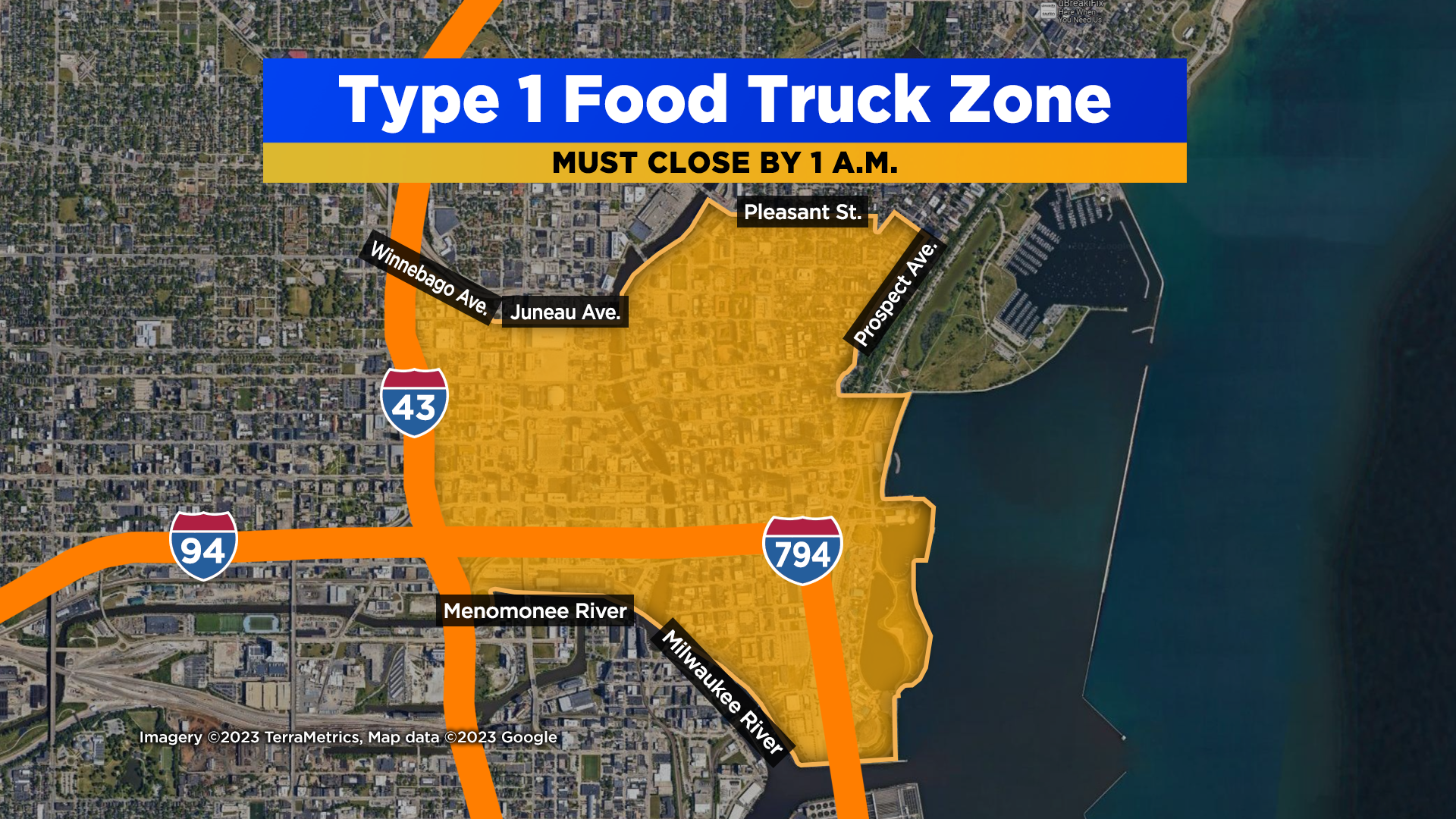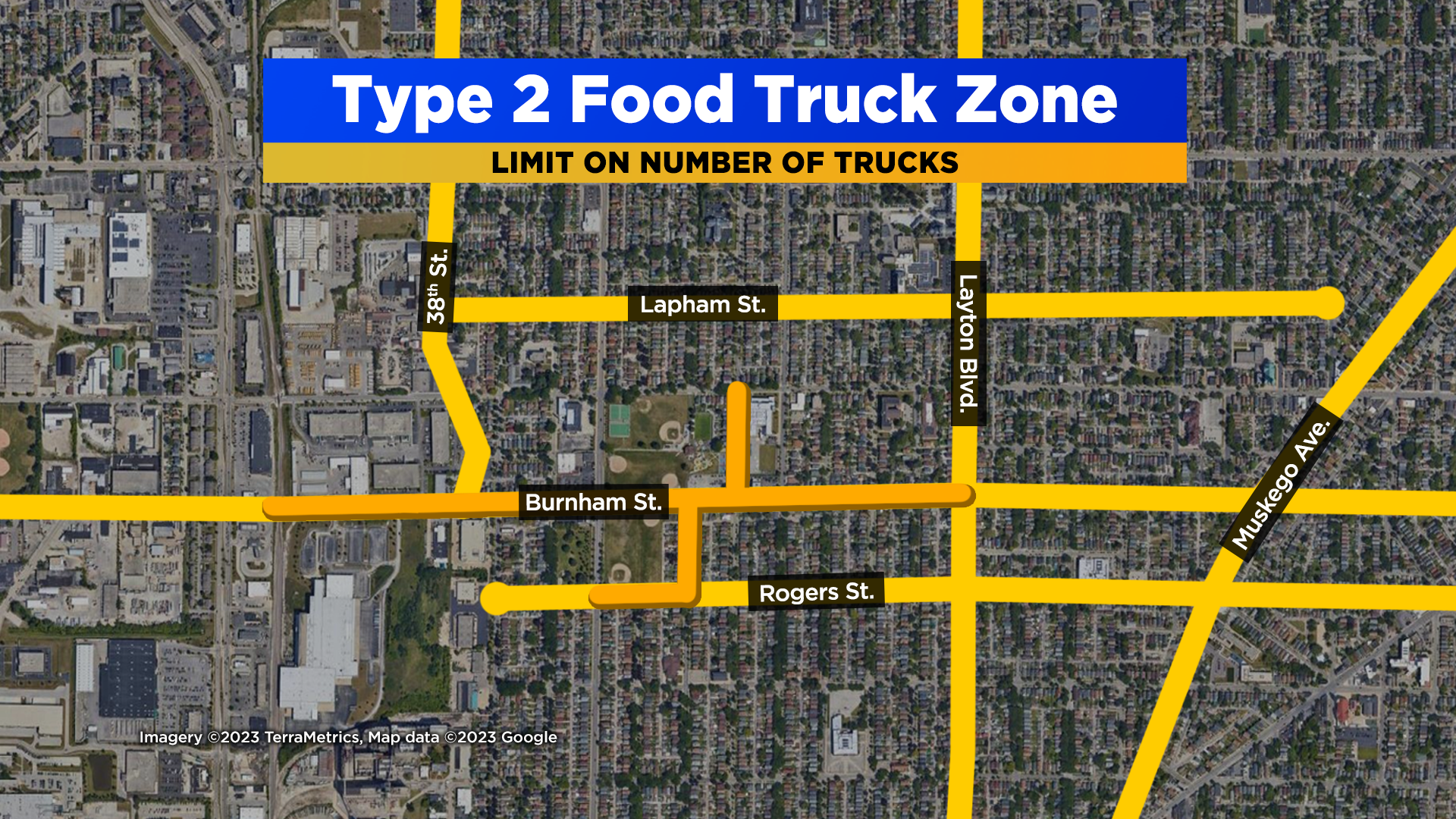Milwaukee Common Council passes ordinance placing new rules on food trucks
MILWAUKEE (CBS 58) -- The Milwaukee Common Council on Wednesday, May 31, unanimously passed a new ordinance that will set rules for food trucks in the city moving forward.
The big change will be the creation of two new types of designated food truck zones.
We're at City Hall, where @MKE_CC has unanimously passed a proposed new ordinance that would regulate food trucks in the city.
— A.J. Bayatpour (@AJBayatpour) May 31, 2023
The big change is the creation of two types of truck zones: one setting new limits based on time, another limiting how many trucks can set up at once. pic.twitter.com/FRAzTEIPS9
Zone 1 has restrictions based on time. It encompasses the heart of Downtown Milwaukee, along with Westown and the Third Ward.
Under the ordinance, trucks operating in the Zone 1 area cannot be open between 1 a.m. and 6 a.m.
Walter Garron, an advocate for a coalition of more than a dozen south side food trucks, said he believed the time restriction was unfair and possibly unconstitutional. His biggest complaint was it forced food trucks to close before bars, something that could take a huge chunk of revenue away from trucks that do well after bars close.
"If the time in downtown [for bars] is to close at 2 p.m., all the business should close at 2 p.m," Garron said. "You should not demand other businesses to close earlier."
Zone 2 primarily limits how many trucks can be parked on a particular block on a busy stretch along W. Burnham St. on the city's south side. The Zone runs along Burnham between Layton Blvd. and the West Milwaukee border, just east of Brewers Blvd.
Ald. JoCasta Zamarripa said the council was still working to figure out what the exact capacity limits for different "block faces" in that zone.
"We have to work in collaboration with our experts on public safety," Zamarripa said. "So the Department of Public Works, the Milwaukee Police Department; we will be conferring with them as we determine the parking spaces that will be available in Burnham Park."
The ordinance requires food truck operators seeking to set up in Zone 2 to apply for a permit with the city. Operators will be chosen based on how long they've been running on Burnham St.
Jennifer Antunez, who owns the 'El Pastorcito Mixe' food truck, said the was optimistic her truck would qualify for a permit after being in the area for three years, but still felt uncertain.
"Since we don't know who's actually gonna stay, my biggest concern is what if they end up saying, 'you know what? You have to move,'" she said. "That would be a big concern because this is my only food truck."
The ordinance also creates universal regulations for food trucks across the city. Operators must provide a trash can outside their truck. All operators are prohibited from dumping any liquid waste.
The ordinance also increases the possible fines operators can receive for creating a nuisance, going from a range between $5 and $50 to a range between $50 and $500.
Future changes and a possible lawsuit
One unique aspect of the ordinance is that it requires a review every year of how the ordinance is working and if anything needs to change. Zamarripa said that could include a review of the application process, as well as the hours of operation allowed downtown.
"Perhaps we can come together," she said. "Take a look and determine, 'you know what? We can keep them open later.' You never know."
say they will work on moving forward, is figuring out which city agencies will enforce different aspects of the ordinance.
Another aspect of the ordinance Zamarripa and co-author, Ald. Jonathan Brostoff, said would likely evolve over time is who enforces different aspects of the regulations.
Currently, police will handle much of those duties, but the alders said the Department of Neighborhood Services and the Department of Public Works' parking enforcement division could take on responsibilities in the future.
Before any of that can happen, the city might have to defend the current ordinance language in court. The Wisconsin Institute of Law & Liberty (WILL), a conservative legal group, indicated Wednesday it was considering a lawsuit arguing the restrictions are unconstitutional.
"If this ordinance is enacted, we would consider all legal options to stop these anti-competitive restrictions," WILL Deputy Counsel Lucas Vebber said in a statement.
Brostoff and Zamarripa maintained some degree of regulation was necessary. The Common Council file on the ordinance included letters from neighborhood business associations relaying concerns about food trucks littering, dumping oil in sewers and setting up too close to brick-and-mortar restaurants.
Because this was the council's first attempt at comprehensive citywide food truck regulations, Brostoff said Wednesday's vote was far from a final step.
"We wanna continue to evolve and keep getting it right," he said. "And given the lack of action for so many years in this regard in Milwaukee, you know, there will be some growth there."
Garron said the chance of future changes wasn't good enough. He said he was working with two food truck operators who were considering signing onto a WILL lawsuit.
"This is not the end," he said. "It's just starting."
















